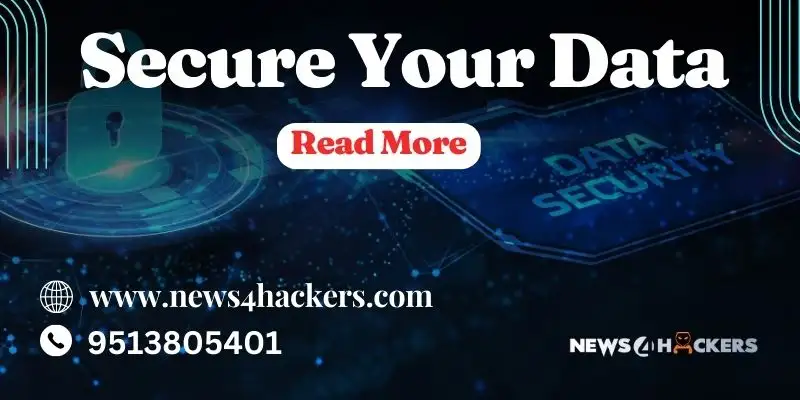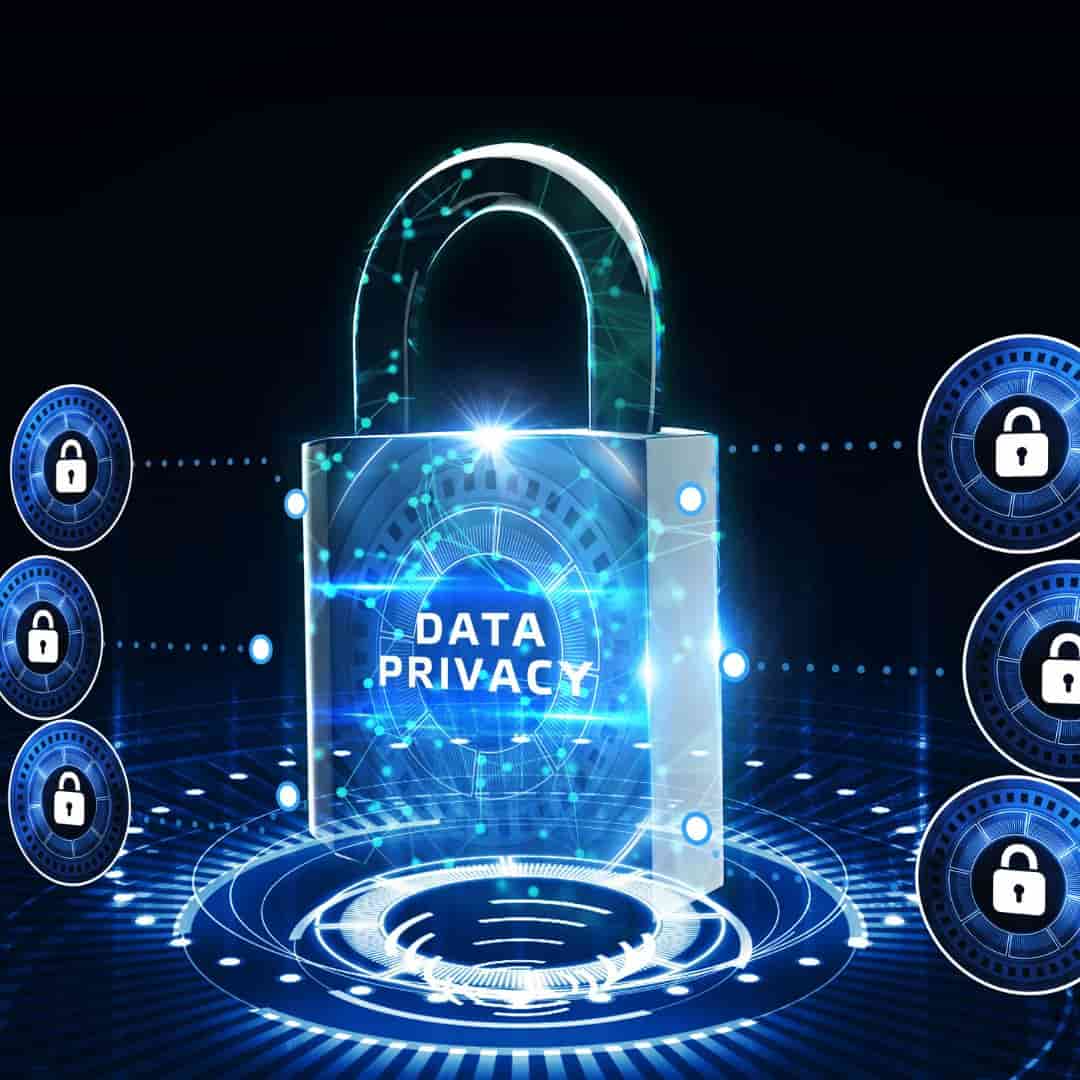Secure Your Data: Tips for Protecting Your Personal Information from Cyberattacks

Secure Your Data
Due to the challenging nature of the IT Industry, we have to face a lot of challenges every year. Professionals in the industry have been offering services to the organization to maintain their system’s confidentiality.
Data protection is necessary to assist organizations in keeping the privacy of the organization’s resources. Ultimately, cybersecurity skills and techniques can secure the data for the company, users, individuals, and its clients.
However, if you don’t have cybersecurity skills, you can learn some of the cybersecurity methods to secure your online data from online threats. Let’s continue!
The Importance of Protecting Personal Data

| S.No. | Objectives and Expectation | Define |
| 1. | Identity Theft | Personal data, like credit card details and social security numbers, can be used by cybercriminals to take someone’s identity and perpetrate fraud. |
| 2. | Financial Loss | Businesses and individuals may suffer financial losses if personal data is compromised. Data theft allows cybercriminals to get access to bank accounts or make false purchases. |
| 3. | Reputation Damage | A cyberattack or data leak can harm a person’s or company’s reputation. In the event that personal information is made public, relationships with clients or consumers may suffer, and trust may be lost. |
| 4. | Legal and Regulatory Consequences | If a person or organization doesn’t protect personal data, there may be legal and regulatory repercussions. For instance, businesses that violate the General Data Protection Regulation (GDPR) in the European Union may be subject to hefty fines. |
| 5. | National Security | Additionally, the misuse of personal information for illicit goals that jeopardize national security is possible. |
Common Types of Cyberattacks That Target Personal Data
Many types of cyberattacks target personal data. Some of them are as follows:
- Phishing: In a phishing attack, a cybercriminal sends a fictitious email or message that appears to be from an accredited organization, like a bank or social media site. Normally, the message will request personal data from the addressee, including login passwords or payment card details.
- Malware: A sort of software called malware is designed to cause damage, tamper with, or have unauthorized access to a computer system. Malware can be used to hack a network or steal confidential data.
- Ransomware: A form of malware referred to as ransomware encrypts a victim’s files and demands money as compensation for the decryption key. Loss of money or personal data may arise from ransomware attacks.
- Man-in-the-Middle (MitM) Attacks: MitM attacks happen when a hacker monitors conversations between two parties and captures personal data, including login credentials or credit card details.
- SQL Injection Attacks: SQL injection attacks are carried out when an adversary inserts malicious code into the SQL database of a website in order to steal user data or access the backend of the website.
- Distributed Denial-of-Service (DDoS) Attacks: DDoS attacks are intended to overload a network or website with traffic to the point where authorized users can’t access it. These assaults may be used to steal confidential data or to tamper with business processes.
- Password Attacks: Password attacks involve undertaking an effort to decode or guess passwords in order to obtain access to sensitive or confidential data.
Tips for secure your data from Cyberattacks
Sure, here are some tips to secure your data from cyberattacks:
- Use Strong and Unique Passwords
Don’t reuse passwords across many accounts; instead, use strong, one-time passwords for each of them. To create and keep secure passwords, think about using a password manager.
- Enable Two-Factor Authentication
By requiring another type of identification, such as a code delivered to your phone or a fingerprint scan, two-factor authentication adds an additional layer of security to your accounts.
- Keep your Software Up to Date
Ensure that the most recent security patches and updates are installed on your operating system, programs, and antivirus software.
- Be cautious with Emails and Links.
Don’t open attachments or click links in emails or on websites you don’t recognize. Emails requesting quick responses or requesting confidential data should be especially avoided.
- Use Encryption
Your data can be secured from being stolen and viewed by unauthorized individuals via the use of encryption. To find such services, look for end-to-end encrypted messaging apps.
- Be Careful with Public Wi-Fi
Avoid entering into accounts or accessing vital information on public Wi-Fi networks since they can be insecure. Think about encrypting your traffic with a virtual private network (VPN).
- Backup your Data
Make regular backups of your sensitive data to a cloud storage provider or external hard drive so you can restore it in the event of a cyberattack.
The Role of Government and Industry in Protecting Personal Data
Both of them share an equal part of the responsibility for the sake of users’ data confidentiality. Some of the ways through which both of them save the data are as follows.
| S.No. | Government | S.No. | Industry |
| 1. | ● Establishing Laws & Regulations,
● Enforcement, ● Educating the Public, and ● Funding Research. |
1. | ● Implementing Security Measures,
● Providing Transparency, ● Developing Standards, and ● Investing in Cybersecurity. |
Seeking Assistance from Cybersecurity Experts and Professionals
There are several types of cybersecurity experts and professionals that you can ask for assistance in data protection. Here are some examples:
- Information Security Analysts
Such professionals can plan and install security measures to secure the firm’s systems & networks. Organizations can get professional cyber security solutions from these experts to prevent cyberattacks.
- Penetration Testers
Firms hire such professionals to test systems & networks to find loopholes that adversaries could exploit. You can get a note from them on how to improve your security methods.
- Incident Response Analysts
Professionally trained incident response analysts can guide you to be prepared for cyberattacks, such as
- Breaches and
With the help of such professionals, one can easily respond to cyber-attacks and will be able to reduce such incidents.
- Forensic Analysts
Such professionals are highly skilled in following tasks.
- Collecting,
- Analyzing, and
- Preserving Digital Evidence.
They mostly handle cases involving data breaches and other cyber attack cases related to information and technology.
- Cybersecurity Consultants
You can get a better consultation from these experts on how to enhance your firm’s security measures. They are able to penetrate any machine to know about their cyber security flaws. This will improve your organization’s whole security management.
Kindly read another articles:
Nigerian National from Delhi is Detained by Pune Police for Online Gift Scam





